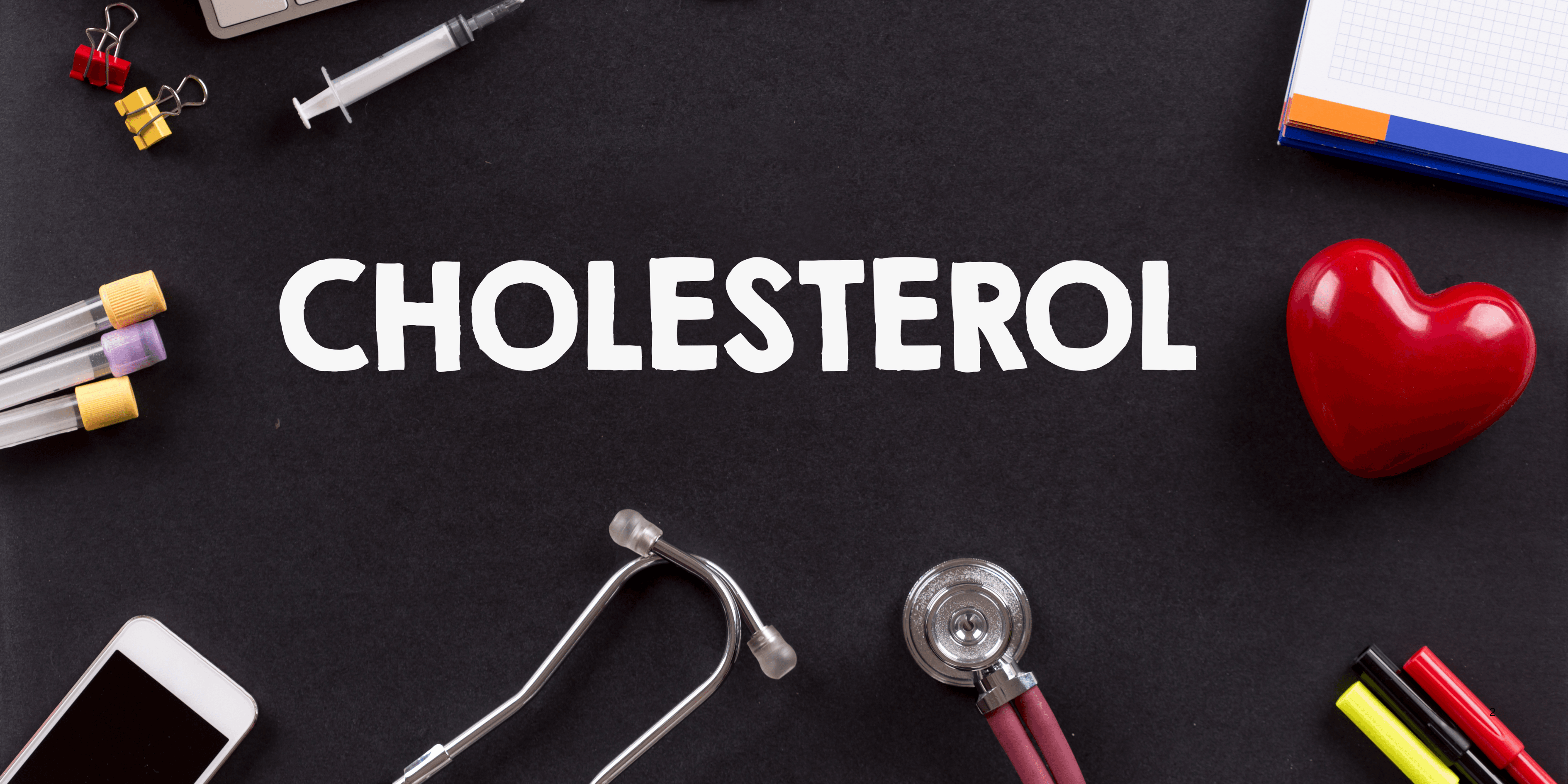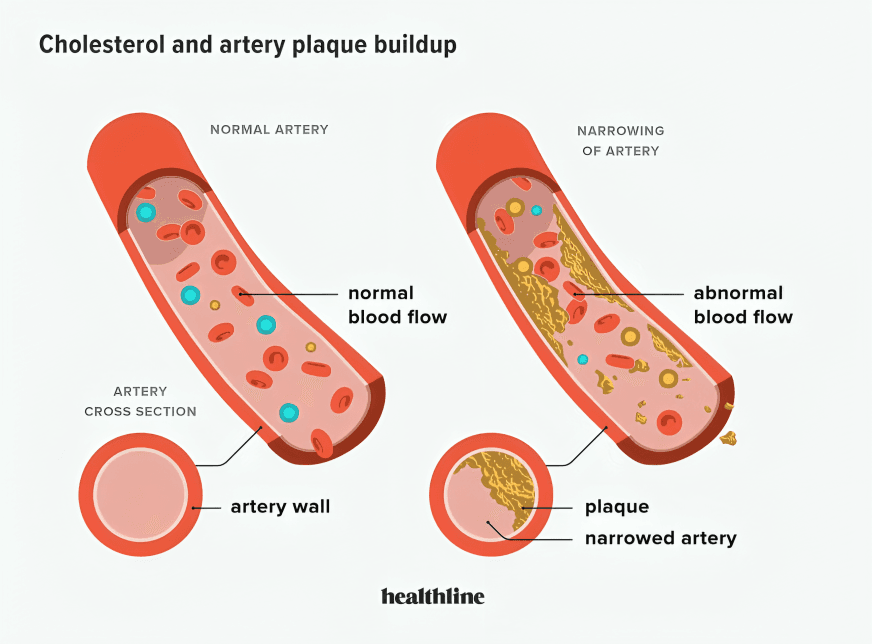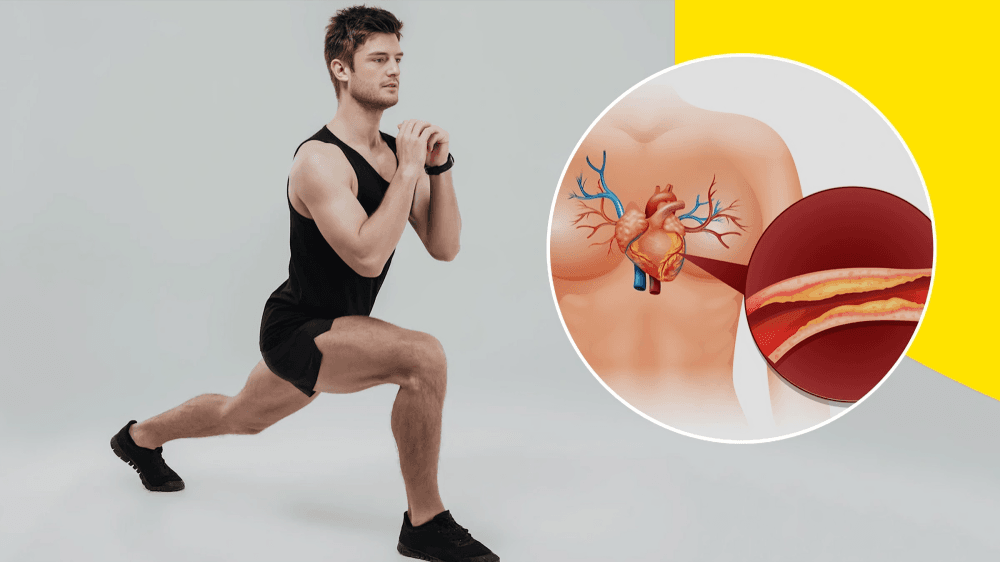
“
Understanding cholesterol and heart health is essential for anyone wanting to protect their cardiovascular system. While cholesterol often carries a negative reputation, it plays vital roles in the body. However, imbalances in cholesterol levels can lead to serious heart-related problems. 1
1
”
According to cardiologists, cholesterol is a waxy, fat-like substance your body needs to build cells, but excess LDL cholesterol can build up in arteries and restrict blood flow. 1
High-density lipoprotein (HDL) is known as "good cholesterol" because it helps transport excess cholesterol to the liver, reducing the chance of plaque buildup and supporting cardiovascular wellness. 2

Low-density lipoprotein (LDL) is considered "bad cholesterol" because it contributes to plaque formation in artery walls, increasing the risk of heart attacks and strokes when levels remain elevated.
Cholesterol doesn't dissolve in blood; instead, it's carried by lipoproteins. The balance between HDL and LDL cholesterol is what determines overall heart health and potential cardiovascular risks. 3
Your liver produces all the cholesterol your body needs, but dietary sources—especially saturated fats and trans fats—can significantly raise LDL levels and create harmful imbalances in the body. 4
When LDL cholesterol accumulates, it can cause atherosclerosis—a condition where arteries become hardened and narrowed, making the heart work harder and increasing the risk of serious complications. 5
Statins are widely prescribed medications that help lower LDL cholesterol. They work by blocking a liver enzyme responsible for producing cholesterol, reducing plaque buildup and heart disease risk. 6
Some Eastern medical philosophies recognize the role of diet and stress management in balancing internal systems, including blood lipids, suggesting heart health depends on lifestyle harmony, not just medication. 7
Genetics plays a strong role in cholesterol levels. Familial hypercholesterolemia is an inherited condition that causes extremely high LDL cholesterol, leading to early-onset heart disease without early treatment. 8

Physical activity not only helps manage weight and blood pressure but also raises HDL cholesterol, contributing to better cardiovascular health by improving the body's natural cholesterol-clearing systems.
Cholesterol is essential for hormone production, including sex hormones and vitamin D synthesis, showing it’s not inherently harmful—only imbalanced or excessive levels become a concern for heart health. 9
Regular health screenings for total cholesterol, HDL, LDL, and triglycerides help detect risks early, giving people the chance to take proactive steps toward managing their heart health effectively. 10
Cholesterol-lowering diets often include plant sterols, naturally occurring substances in plants that block cholesterol absorption and lower LDL levels without affecting HDL cholesterol significantly. 11
Excessive alcohol consumption can raise triglyceride levels and increase blood pressure, both of which can worsen cholesterol imbalances and increase the risk of heart disease over time. 12
Cholesterol plaques can rupture, causing blood clots to form. These clots can block blood flow to the heart or brain, resulting in heart attacks or strokes, often without prior symptoms. 13

A Mediterranean diet, rich in vegetables, olive oil, fish, and whole grains, has been shown to lower LDL cholesterol while increasing HDL, making it a heart-friendly option for long-term health.
Hormonal changes, especially in women after menopause, can lead to higher LDL and lower HDL levels, which is why postmenopausal women are at increased risk of developing heart disease. 14
Cholesterol levels tend to rise with age due to slower metabolism and lifestyle changes, highlighting the importance of early heart health habits and regular check-ups as people grow older. 15
A high triglyceride level often accompanies low HDL and high LDL, forming what doctors call an "atherogenic profile"—a highly dangerous mix that significantly raises the risk of heart disease. 16
Physicians emphasize that cholesterol management is a lifelong process. Even with medication, lasting benefits come from lifestyle changes like diet, exercise, and quitting smoking to keep the heart strong.17


